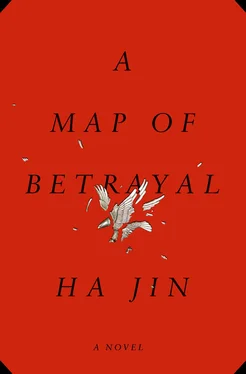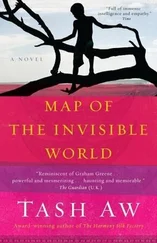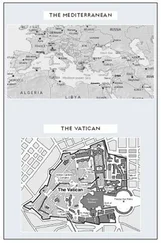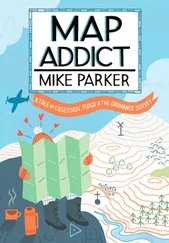It was there in the summer of 1958 that Gary discovered jazz. He enjoyed the spontaneous ebb and flow of the music, the swings and plunges, and the assured improvisation by the black musicians, one of them wearing dreadlocks, a hairstyle Gary hadn’t seen before. In spite of the mercurial notes, the music was so comforting and relaxing. Unpredictability — that was what he loved about jazz — everything was freewheeling, unprepared, yet always under control. He was so enamored of it that he began collecting jazz records, in particular those of Louis Armstrong and Benny Goodman.
One evening Thomas told Gary over a glass of Chablis, “You’d better get naturalized soon.” His green eyes were snapping meaningfully, as if to hint that once Gary became a U.S. citizen, there’d be more lucrative work for him.
“I’ll do that,” Gary said.
Since he wasn’t naturalized yet, Thomas could give him only less classified documents to translate, mainly the type listed as Confidential. Above that there were levels, such as Secret and Top Secret, to which Gary, as a noncitizen, was denied access. Nevertheless, every once in a while Thomas would use Gary for rendering secret orders for the spies in China that could not allow any ambiguity or inaccuracy. By translating these directives, Gary came to know some agents’ code names, their missions, their communication plans. He just kept notes on them and did not attempt to send out the intelligence right away, because he remembered the instructions from Bingwen: he was a strategic agent, not a petty spy specializing in sabotage or stealing technology. In addition, time is a determining factor in the espionage business. Generally speaking, the information before an event takes place is intelligence, whereas the information on an event that is already unfolding has become news. If the event is over, any information about it is nothing but archival material. Without a direct delivery channel, Gary couldn’t pass urgent information to Bingwen quickly, so he didn’t make an effort to collect the kind of intelligence whose value hinged on a time frame.
At the same time, his mind had been preoccupied with the ongoing events in China. At the end of July 1958, Khrushchev visited Beijing, and the two countries signed a joint communiqué that highlighted the cooperation and solidarity between them. A month after the Soviet leader had returned to Moscow, Mao ordered a massive bombardment against the Nationalist troops on Jinmen Island. One evening five hundred artillery pieces — cannons, howitzers, heavy coast guns — fired all at once, shelling the military positions, wharves, airfields, supply lines. Within hours hundreds of soldiers were killed outside the bunkers and in the trenches. Three generals, all vice commanders of the Jinmen defense, were also among the casualties. The top brass were eating dinner in a dining hall when a barrage of shells landed on them. Two generals were killed on the spot and the other one died on arrival at the field hospital.
For days the Nationalist army was too crippled to fight back. Then the United States gave them twelve 8-inch M55 self-propelled guns, which were delivered under cover of darkness. With the deployment of these heavy howitzers, the Nationalist troops began to fire back and managed to suppress some of the Communists’ artillery (though one of the big guns was blown up by a hostile shell that landed right in its barrel). Soon mainland China declared that it would bombard the island only on odd-numbered days to give the civilians and the defending troops a breather. Such a practice, which was also a way to dispose of expiring shells, continued till 1979, when China and the United States finally reestablished a formal relationship.
Following the events after the attack, Gary came to know that John Foster Dulles and Chiang Kai-shek had recently held secret talks about how to deter Red China’s aggression. The secretary of state suggested using nuclear weapons, which Chiang agreed to in principle, saying that a handful of small tactical bombs might do the job. But when Dulles revealed that the warheads should be at least as powerful as those dropped on Hiroshima and Nagasaki, Chiang was aghast. After the talks, his government informed the White House that nuclear weapons should not be an option — the fallout might endanger Taiwan and the U.S. military bases in East Asia.
Another piece of information also took Gary by surprise. Some political analysts in Southeast Asia believed that the Communists’ artillery attack served two purposes: one was to sabotage Khrushchev’s new policy of promoting world peace because Mao, an advocate of confrontation, was always spoiling for a fight against the imperialist West; the other was to form a link with Taiwan — in other words, the bombardment signified a territorial claim. It was reported that the moment Chiang Kai-shek heard of the attack, he’d said in praise of Mao, “What a marvelous move!” That was because he didn’t want to see an independent Taiwan either, still viewing himself as the leader of the whole of China. Initially Gary was baffled by Chiang’s words. All three of the generals who had died were noted for their ability and bravery, and Chiang must have known them personally. So how could he call the bombardment “a marvelous move”? Evidently, to the top commander, even generals were expendable. The whole affair felt as if Mao had stretched out his hand and Chiang had shaken it with appreciation, so that Jinmen Island would serve as a link between the mainland and Taiwan. The two sides seemed to have worked in tandem, and only the soldiers were the losers.
Gary took photos of the documents, specifically the conversation between Dulles and Chiang. He wanted the Chinese leaders to be more cautious when they decided on military action in the future. They ought to take into account possible nuclear attacks in retaliation.
After telling Nellie that he wanted to travel back to Hong Kong to see his cousin, Gary went in early December, a good time of year for a vacation there. He gave thought to the possibility of being noticed by U.S. counterintelligence. “Let them follow me,” he said to himself. “If that happens, I’ll go home sooner.” But nothing happened, as McCarthyism had been publicly condemned and foreign travel was more common now. In Hong Kong, Gary handed his films to Bingwen. For this intelligence he was paid a thousand dollars, deposited directly into his account at Hang Seng Bank.
It was on this trip that Bingwen revealed the existence of Gary’s twins back home. The news made his stomach heave. He was speechless, staring at the photo in which Yufeng and their son and daughter were smiling at him. They all looked content: his wife had aged a little and was fleshier than before, while the children both had his eyes and mouth. The boy was bonier and shorter than the girl; if only they could have traded bone structures so that he might grow up more strapping. The photo must have been recent because the twins looked eight or nine years old. They had started school the previous fall, according to Bingwen. After examining the three faces in the grainy picture for a long while, Gary sighed and said, “If only I had known Yufeng was already a mother.”
Bingwen lifted his cup of oolong tea, his pinkie sticking out, and took a sip. He asked, “Your point being?”
“I would’ve had second thoughts about getting married abroad.” Eyes glazed in pain and smitten with regret, Gary wanted to add, “What a terrible mess!” but he held back. Furrows gathered on his broad forehead and his ears buzzed. He swallowed, wheezing and pushing down a wad of misery in his windpipe. Unconsciously he lifted his cup, but the tea splashed, leaving brown drops on the white tablecloth. He put it down without drinking it.
“I see,” Bingwen said. “You want to be more devoted to Yufeng and to your kids. That’s why our higher-ups did not allow me to disclose the truth to you — they feared you might want to come back soon. Our Party and country need you to stay in the enemy’s camp.”
Читать дальше











